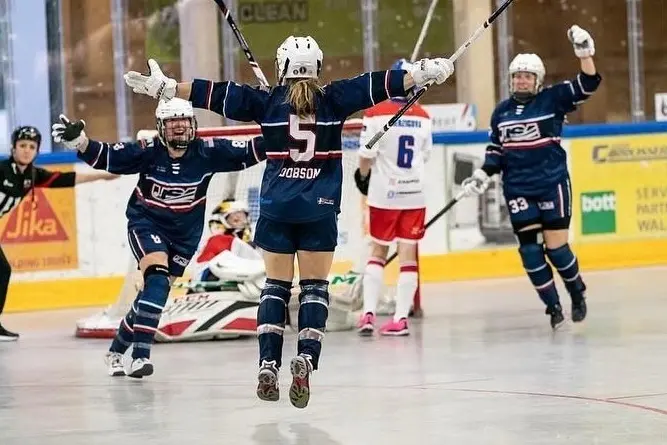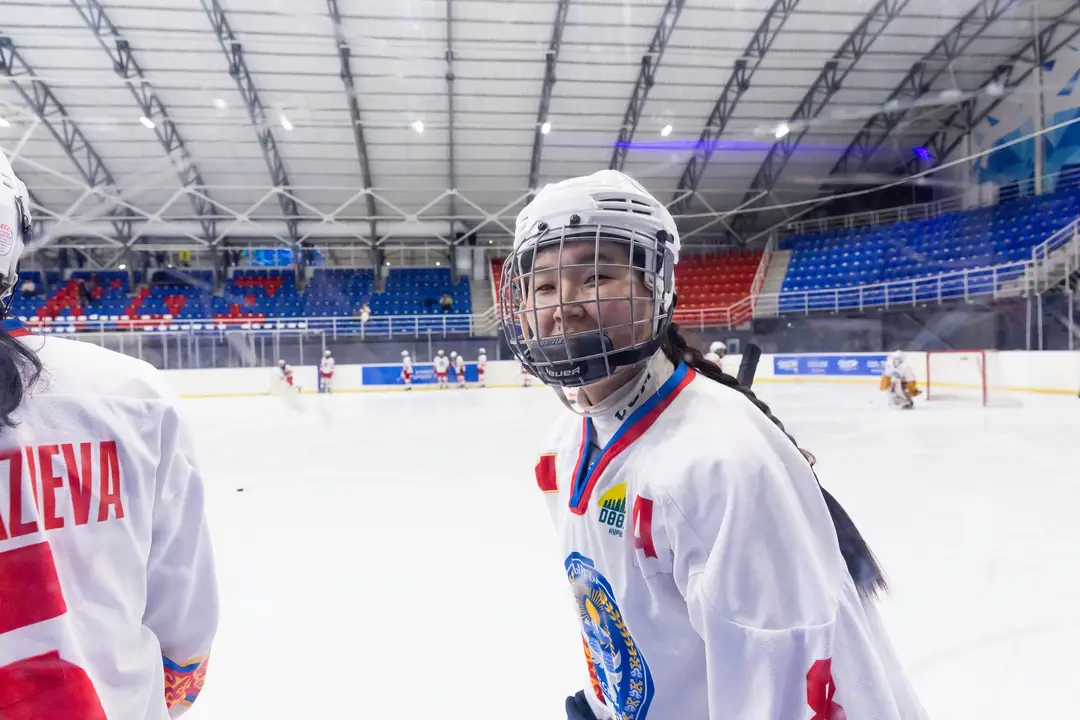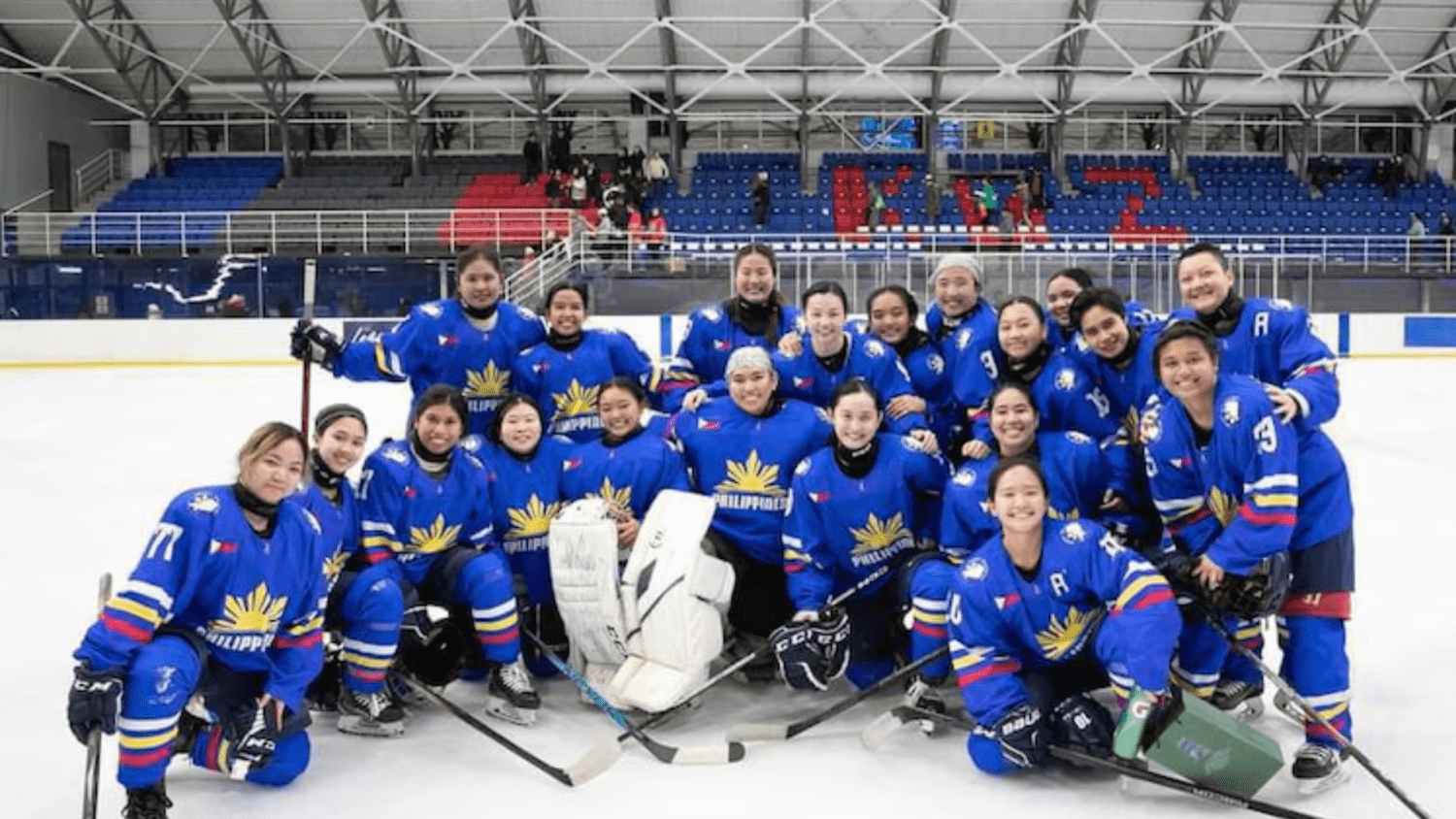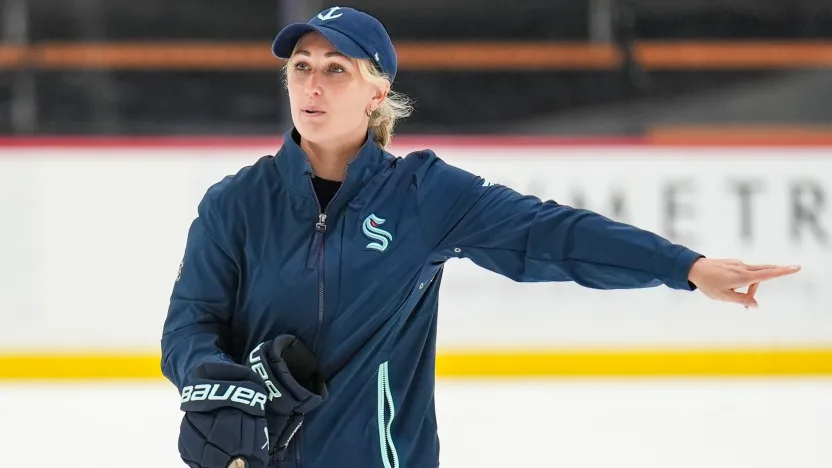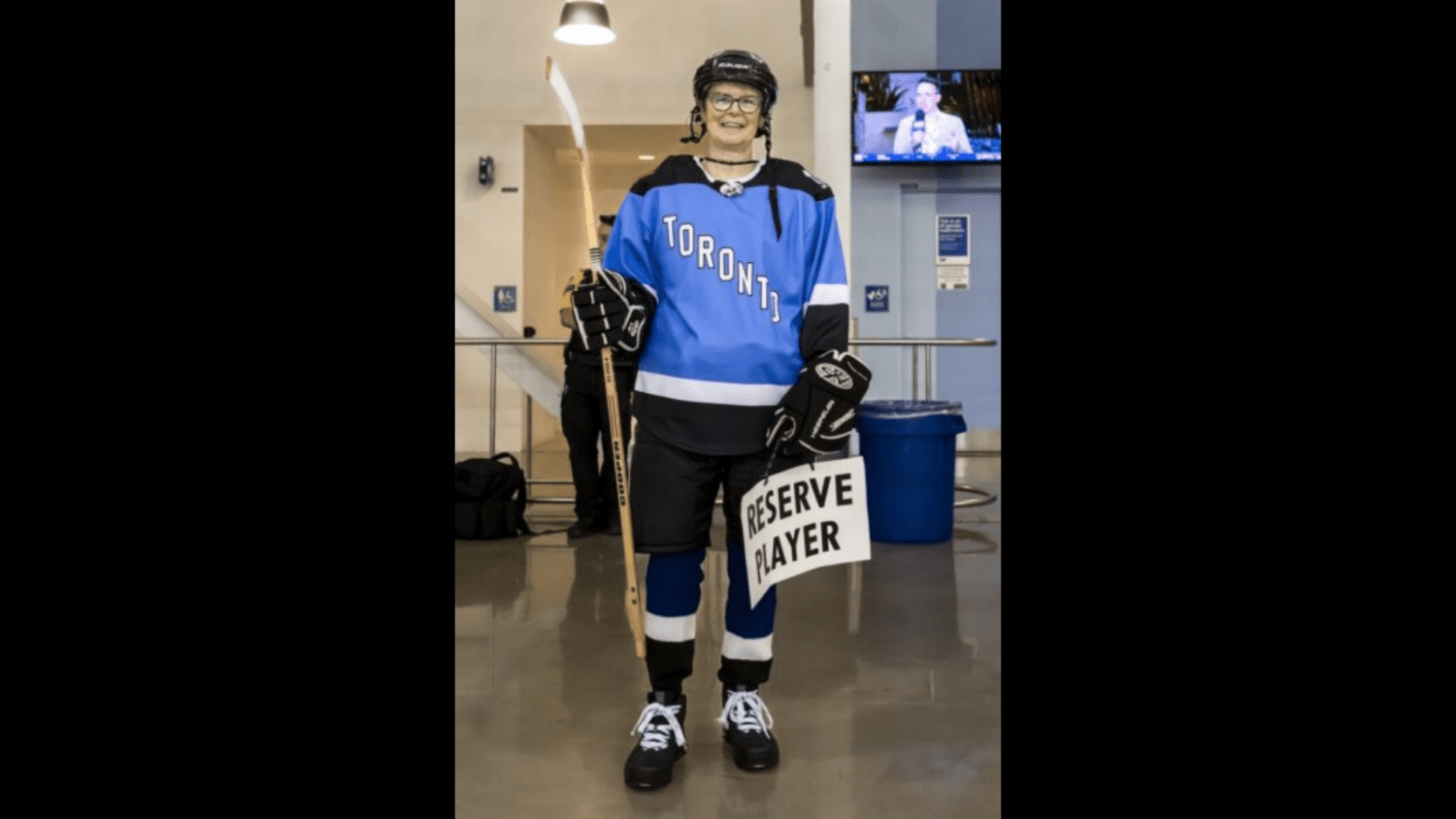The first time I remember having an anxiety attack was standing in the lobby of my favourite arena on November 30th, 2017. Kind of a sick and twisted form of irony, now that I think about it. But to understand that, you’ll need some backstory—a story that I haven’t talked about before.
I grew up at this arena. After not having a rink in the county until 2007 when I was ten years old, I then spent most of my formidable years there.
From the time I laced up my skates and then saw the local women’s college team play a game, I dreamed of playing hockey there. What drew me to hockey and playing college hockey was the camaraderie, the family that came with the team that I saw, watching the girls interact on the ice and off the ice when I saw them around the rink during the week.
Unfortunately, there were not many girls my age playing hockey in my area. There were so few girls that it was nearly three hours to the closest Tier 2 or 3 team for my age most of my playing career. Through a few loopholes and a very flexible rec league, I played one season of competitive hockey in 2013-14 and spent the next season and a half as a student coach for a girls’ U16 team. Along the way though, I gave up on my dream of playing college hockey.
I fought hard to play hockey, I faced a lot of obstacles in that fight. Some of those obstacles were out of my control and some were ones I put up myself, but, nevertheless, I fought to play hockey and there was nothing about my hockey journey that was easy. The only person who fought harder than I did was my mom. She fought for me to have ice time and to have a team to play on.
So in September of 2017, only two months prior to that anxiety attack in the middle of the rink lobby, my mom was the first person I called when I found out I could play hockey for the inaugural season of the college team I’d been dreaming about.
I cried, and I’m pretty sure she cried too.
I was ecstatic to be on the ice again, to wear that jersey and to be the first person to ever wear that jersey. The history and significance of that first or any of the firsts we accomplished the first half of the season were never lost on me.
Things were great at first, my coach told me she was excited to work with me. I told her I wasn’t good and knew I wasn’t good, but that I was willing to work and she seemed excited about it, she told me it would be awesome to see by the end of the year how much I had improved. She said that out of everyone on the team, the improvements I’d make through the rest of the season would be the greatest because I had the most to learn.
But what came after that conversation was not what she had promised or what I had hoped.
There were thirteen skaters on the team, not enough to scratch anyone, so I played every game. We had three forward lines and four defensemen—we all got playing time at first.
I don’t remember exactly when everything started to go south, I think my brain has purposely forgotten because of the mess that became of my head afterward.
My housemate was captain, she had been my best friend a year prior during our freshman year, but I soon learned that she wasn’t on my side, that she wasn’t a good friend and had done a number of things to stab me in the back personally, but I kept it away from the rink.
Then, the problems started creeping up at the rink—the very place I always felt safe.
My phone would go off and I’d see my coach had texted me and my stomach would bundle up in a knot and I’d want to throw up. I knew that if she texted me it was because she wanted to talk to me about some non-issue that had been made up by my roommate. I’d avoid studying at the rink because seeing her made my palms sweat and my heart come up in my throat. The only time I ever wanted to be at the rink was during the men’s games because my family had grown close to the players, coaches and families.
I told my mom some of it, mostly about the issues with my roommate at home and in the locker room where she would act like I wasn’t there and I felt invisible. The girls on the team looked up to her, she was captain and a sophomore and she sort of bullied her way into the girls following her lead for a little while.
The second week of November was particularly bad with my roommate and I wanted to quit, but my mom and I talked through it and I thought that I could get through it after calming down.
But two weeks later, I had had enough.
I had gone to the rink to tell my coach that I had pink eye and couldn’t play the upcoming weekend and she told me she needed to talk to me in the lobby.
And then it got worse.
She started in about how she didn’t have to take me on the team and that it was a favour to a family friend. She told me I was out of control and that she was also sick of dealing with my mom, who had done nothing but written to the league’s commissioner after we had a bad experience at a road game at another school—a pretty normal thing for a parent who works in hockey to do.
My mind clicked in this moment and I thought to myself, “I don’t need to put up with this anymore. I quit”.
I didn’t have the guts to tell her right there and then that I quit, I was too anxious. My stomach was in knots, my head was spinning, I felt like I was going to throw up, I was biting the inside of my lip to keep myself from crying then and there and I couldn’t stop wringing my hands underneath the table. I sat through her little tirade and calmly said “Okay” every now and again before she finished. I got up and practically ran back to another coach’s office.
I closed the door behind me and started hyperventilating and sobbing and I told him through the sniffling everything that had happened, what she said about me a few minutes prior and what she had said about my mom, that I didn’t want to be at the rink and that I wanted to quit but didn’t want to disappoint my mom.
He talked me down to the point where I could speak intelligently and told me that he couldn’t make the decision for me, but he knew my mom and that I could never disappoint her and that something wasn’t right if I didn’t want to be at the rink.
After calling my mom, I had a plan: I’d email her that I was quitting but not tell her why. I didn’t owe her that. I didn’t owe her anything, I still don’t.
I emailed her and then my mom and brother packed my gear for me.
There were professional issues that I had with her too. I could’ve lived through them if she hadn’t been so emotionally abusive and harassed me to the point that she did, so I sent an email to the coach above her, someone who had been a family friend for years—I didn’t care if he knew the personal stuff, I wanted him to know the professional stuff, the stuff on the ice that made her a bad coach.
The coach told me he wanted to meet with me, but when I walked to the rink from class that morning and her car was in the parking lot, I got that knot in my stomach and my heart and head starting racing. I took a few deep breaths and went back to the office of the coach I was meeting with and his door was closed. I didn’t turn the corner to look in because at that split second that I saw his door was closed, my mind thought she was in there. That she was telling him every false thing that she thought about me and that that’s what I was going to walk into.
I went to the lobby and I didn’t know what to do: my heart was coming up out of my chest and I was shaky, I wanted to burst into tears right there in the middle of the lobby.
That was the first time I remember having a full blown anxiety attack, in the middle of that rink lobby. As if life didn’t care about what a cruel joke it was to play on me to send me into the first of many downward emotional spirals in the very place I used to feel safe.
Like I said, kind of a sick and twisted joke.
It turns out it wasn’t her behind that closed door, so I met with the other coach and rattled off what I had repeated to myself the night prior while I couldn’t sleep and that morning while I walked to class and then the rink in a robotic fashion. But then he asked about the personal stuff, he asked what my roommate had done and said. And I told him, and I didn’t cry (kind of a big accomplishment at that point, I cried a lot that week).
But then he sort of sighed and looked at me and asked “Why didn’t you tell me sooner? I could’ve helped you.”
And then I started crying.
I had been emotionally and mentally beaten down so much that I didn’t think anyone but my mom (who was obligated to care) would care. But there I was, sitting in the office with people who didn’t need to care but who did and I knew that there were a handful of other people in those offices who all cared too and were probably wondering the same thing.
Two weeks later, my Grandpa died suddenly, showering me with a grief that I didn’t know existed. I was too young to remember my paternal grandmother’s death and my paternal grandfather had died long before I was born. I was nearly twenty years old and had never had to deal with that kind of loss before.
My hockey family helped me a lot in the aftermath of that emotionally traumatic month or so. I like to say my story had a happy ending because the next semester I was kind of embraced into being a part of the men’s team, who went on to win a national championship in the most magical few months of my life that followed some of the most traumatic.
But that wasn’t it. That wasn’t the happy ending at all.
After the excitement of the national championship win fizzled out with the end of the school year in April and graduation came and went, I was left alone.
The next semester I was thrown into a situation, again in my own house, where I was uncomfortable and miserable because of who I was living with. I lived in a state of constant exclusion, I could go out into the living room on a Friday night to hang out and I felt invisible in my own house. I never knew that that feeling could be so damaging to your mental health but it completely wrecked me. Once I was home for the evening, I holed myself up in my room the rest of the night and only came out if I knew everyone else was in their rooms or not home.
I dreaded the weekends because I would come home from hockey games and the rest of my roommates would be hanging out in the living room and I could walk in, take my shoes and coat off and nobody would notice as I walked back to my room and locked the door for the rest of the night. I felt like I could come into the house with my hair on fire and still nobody would care about my presence.
Feeling invisible in your own house where you’re supposed to be living with your friends takes a lot out of you and takes a huge toll on your mental health.
By Christmas break, the roommate who seemed to be the root of it all was moving out for other reasons.
The weekend before school started and I was supposed to go back, I had a total breakdown in the car with my mom about my former roommate and everything I was feeling. The anxiety was too much to keep inside anymore and I couldn’t take the way I’d felt in the past few months in my own house.
Sometime between then and April of that year, I didn’t feel any better, I almost felt worse. I didn’t have the motivation to do anything and it got progressively worse after hockey season ended and I didn’t have to be at the rink anymore for work. I fell into a hole that I couldn’t get out of. There were days I couldn’t pull myself out of bed all day. There were days when I wouldn’t interact with the other two people who lived with me because I was holed up in my room. I was always tired. I could sleep for thirteen hours and be tired.
In April of 2019, I was diagnosed with depression and anxiety and, as weird as it sounds, it was a weight off of my shoulders.
There was a reason for how I was feeling and, even more important, I didn’t have to live like that anymore.
Am I magically better now because I was diagnosed? No, not by a long shot. I had an incredibly daunting amount of anxiety about coming back to school this semester after Christmas break. I still have a meltdown over tiny things that remind me of my Grandpa, like Veteran’s Day, seeing an older man in the grocery store that has a hat or coat like he did or hearing taps play on a movie. The difference is now, I’m not afraid to talk about it.
In a day and age where we shout it from the rooftops to talk to people or talk about what you’re going through, I still didn’t feel like I should talk about what I went through.
I felt like I had to hide the anxiety I had from dealing with the emotional harassment from my coach sophomore year or from my living situation my junior year. I’ve been told I’m dramatic enough times since I was little to be afraid of saying anything like what I’ve written in this post. But this past year, I’ve stopped caring and with the people who have come forward with much worse stories about abusive coaches and had the courage to talk about what they went through, what was stopping me.
Two years later, I’m no longer afraid to talk about it. I will tell anyone who asks me that I firmly believe that what happened with my coach freshman year gave me anxiety issues and that the issues with my roommate last year are what exacerbated them. I’m not as afraid anymore to tell my mom that I’m anxious about something or that something is bothering me.
And it’s such a relief.
Last year, on Bell Let’s Talk Day, I opened up a little bit on social media about the anxiety issues I was facing and now this year, now that I’ve come to terms with what’s going on in my head, I wanted to open up about what I’ve gone through.
I’ve spent the last two years being secretive about what happened with my coach and tiptoeing around saying anything that could come off as bad. But I do it because I think we need to talk about how we feel when we feel it. We see the “highlights” of everyone’s life on social media, so we have this belief in our heads that everyone else’s life is perfect and ours isn’t and that we should hide it.
I’m done hiding it.
I’ve seen the damage it can do when you don’t talk about it. I know enough people who have been affected by the results of keeping things bottled up inside or even suicide to know that we need to have this conversation. Mental health matters, things that weigh on your emotional and mental health, like the things I’ve talked about, matter and we need to stop ignoring them.
If you’re going through what I went through, whether it’s a bad coach, a bad roommate or even just depression and anxiety in general, tell someone. Admitting to someone else that you’re not okay is scary, I know it is, but once you tell others what you’re going through, you have people to check on you. I have that now that I’ve told people what’s going on and, believe me, it makes a huge difference.
[adrotate group=”1″]
Related Articles
Categories
Recent Posts
[adrotate group=”2″]


